The Entrepreneurial Accountant: The journey to going solo
How to start a bookkeeping business
22 June, 2023
The founder of Jo Wood Virtual FD and co-host of the Bookkeepers’ Podcast reveals how she started her own bookkeeping business.
Have you ever wondered what it’s like to start and run your own bookkeeping business?
Jo Wood is the founder of Jo Wood Virtual FD, she runs The 6 Figure Bookkeeper and is the co-host of the Bookkeepers’ Podcast.
In this episode, she talks about why she started her own bookkeeping business and what she’s learned along the way.
Check out what she has to say about accounting versus bookkeeping, dealing with monthly management accounts, working with clients, and much more.
Here’s what we cover:
- Bookkeeping, community and kids
- Why mindset is important
- Blurred lines between bookkeeping and accounting
- Removing yourself from the business
Bookkeeping, community and kids
Mike Psaras
Welcome to the Entrepreneurial Accountant. Today, we’re joined by Jo Wood.
Thank you so much for joining us today. I’m really excited to chat to you.
Obviously, I’ve just spoken about your three main involvements. Tell us a bit more about them and whether they interact with each other.
Jo Wood
Absolutely. I think the other involvement I have is three children, so they take up quite a bit of my time as well.
So, yes, I’m Jo Wood.
I run Jo Wood Virtual FD. It is predominantly a bookkeeping practice, but we do offer compliance, and we are based in Gravesend in Kent, but we service clients all over the country and our team is 100% virtual as well and they’re all over the country.
I set this practice up in April 2019, and on the journey to doing that – this is the fifth time I’ve set up a practice, and I was determined that this time it was going to be the right thing, and it was going to be profitable, and it was going to be amazing.
So, as I did it, I documented my journey along the way, all the things I did.
And at the same time, I set up The 6 Figure Bookkeeper’s Club, which is a free community for people like me that were on their own setting up practices from home for bookkeepers and accountants that were lonely and didn’t have that annual event to go to, and felt a bit like they weren’t working on themselves, they were just doing the work.
So, I set up that community and in the last couple of years, that’s grown to over 10,000 members.
In 2020, in Covid, we started the Bookkeepers’ Podcast at the same time to be that one piece of really great content to share with our community along the way.
And now, what’s happening is that I am me, I do wear many hats, but I’m always me.
And whether that is me running my business, or me trying to help bookkeepers and accountants run their businesses profitably, that is how I’m living, and that is my role.
And I’m having great fun while I’m doing it.
Mike Psaras
Good. I’m glad. The passion really comes through. Definitely. It is a really satisfying job, and I think how you’re doing it is great as well. Because in my opinion, variety is the spice of life.
So, getting to do a little bit of everything, having your creative outlet through the podcast and helping people – having some free content out there is amazing, lead generation and all that kind of thing.
Then you’ve got your actual job, the FD bit, which I think of the three is probably the most technical.
Which one do you enjoy the most?
Jo Wood
Well, I don’t like to class myself, but I keep being told that I am really a business coach in both roles, and that’s what I do.
So, whether I’m talking to my clients, I’m giving them advice on how they achieve their goals and holding them accountable.
And I do the same with the bookkeepers in our community as well.
I’m the eldest of five children and my mum was always reading personal development books and was going to seminars and everything, and she was always stretching us.
We always had that growth mindset.
So, I think that’s just me being me. So, that’s why I don’t feel like I could label it. It’s just how I am.
Why mindset is important
Mike Psaras
That’s really nice. Definitely, the business coach element is something that, I think, a lot of clients appreciate, and the mindset – helping them with their mindset is really important.
And I think recently – I don’t know if it was yesterday or the day before – you posted something really nice about being above the line or below the line, and I think that comes from that coaching background of… also, for any walk of life.
It’s not just being above the line at work. It’s about your team. It’s about your clients. It’s about how you are outside work in general conversation.
So, I think that was a really, really lovely thing that you brought in.
If you want to talk about it a little bit more, I would love you to.
Jo Wood
Yes, absolutely. Well, it was something that [GoProposal founder] James Ashford was talking about yesterday at the Masterclass.
So, I actually visited Sage – well, I don’t know if it’s the headquarters, but it felt like it in The Shard, it was lovely.
And he was talking about this mindset. And it’s one of the things that I’ve said that’s changed why my fifth practice has been a success compared to my previous having-a-go-at-it.
And it really was that change in mindset of taking responsibility for the good and for the bad. And actually, whenever something happens, sitting back and thinking, “How did I play a role in that? How did I enable that situation to come about?”
And exactly like you said, it’s not just business. It’s now helped me with parenting.
I have two teenagers, one pre-teen, there’s lots of situations where things go a little bit wrong, and I have to then take responsibility.
And I don’t blame them because they’re children, and they’re growing. So, why would I do that in business?
And it really has been the biggest opportunity for me to make those changes, and they can be just tiny changes, but taking responsibility.
I’ve allowed that client to treat me like this. I didn’t set the boundaries in place. I wasn’t good enough in the onboarding to let them know that this is how I work.
And I wrote an article recently for AccountingWEB about my onboarding. I kind of call it a Client Training Program really. Because I realised that it’s not fair to expect something from someone else if I’ve not set out the guidelines and told them exactly how it is, and how this is going to work.
And actually, what I’ve realised is if we’re really open and honest about that – and that’s why I’m very open and honest in my social media, I don’t hide back.
If someone wants somebody that never dances in their kitchen once they’ve had too many Proseccos, then I am not the bookkeeper for you, because that is me.
And I’d prefer to be 100% me and repel the people that don’t like me because then that means that we’re all happier in our working relationships.
And also, I think it was the decision or recognising that I get to choose who I work with. I get to choose how my days pan out.
I get to decide that actually I want to – there’s two parts of me. I really want to run a practice, but I also really want to help other people run a practice, and I can split my time like that.
And also, I get to choose that I want to cook dinner for my kids and be there when they get off the school bus. Not that they’d want to talk to me. But I want to be there for them and just hand out snacks and then they all disappear to their rooms.
But I get to choose, and I get to decide what feels good, what feels like a good relationship. And I started listening to my gut instincts more.
Because I realised that, actually, a lot of the time we know the answers, but sometimes we’re a bit scared to have those difficult conversations. And I have had more of those difficult conversations, and they’ve had really good outcomes.
Like today, I’ve just repriced a client that I’ve worked with for the last year, and I doubled the fee, and they’ve said, “Okay.”
And I’ve had to have those difficult – because otherwise, I’m choosing to be in a relationship where the scope of work and the price don’t match, and then that feels… it all gets a bit icky and my staff aren’t happy, and they that they’re doing more and the scope’s increased, and I’m not sticking up for them.
And so, we have to have these difficult conversations, be grown-ups, but we have to stay above the line and stay responsible.
Take ownership of the outcome, and be accountable to the actions we’ve taken, or the actions we haven’t taken, and that’s what’s led us to whatever the outcome is.
Blurred lines between bookkeeping and accounting
Mike Psaras
That’s lovely. And I think, as you said, kind of you touched on it, it’s only a small thing, and sometimes you know it within yourself, but it’s once you start applying those practices and you start seeing some results.
They build your confidence in the sense of, “Okay, this is actually how I want to live my life in all aspects.”
As far as accountancy and bookkeeping go, I just wanted to delve a little bit more into those sorts of things.
Do you feel at all that the lines between what a bookkeeper does and what an accountant does are blurring at all as time goes on and technology evolves, and what clients want changes?
Jo Wood
So, absolutely. It could be seen like that.
And as I say, I have a full end-to-end service in my practice, but I don’t do the compliance. I employ a qualified accountant to do the compliance.
Where I see a bookkeeper should be evolving is, obviously, having those daily, weekly touchpoints, and making sure that the records are up to date. But then starting to have the conversations about what the bookkeeping means.
And that is the bit which both accountant and bookkeeper could do, can do, but lots choose not to do.
They hide behind the screen and think, “All I’ve got to do is get this bank reconciliation done. All I’ve got to do is get this VAT return done.”
So, this is where it could blur, but not many are doing it. Or if they are, they’re not doing it enough, in having the conversations frequently enough.
Today, again, the reason that the client has just doubled his fees, I’ve said to him, “Quarterly, management accounts and cash flow forecasting, and the conversation we’re having at that point is not enough for your business. You’re growing.
“When we have these meetings, they go on for such a long time because there’s so much to cover. I’m saying and I recommend that we do this monthly.”
And they’ve gone for it, hence why the fee – the scope has changed, and their fee has increased. But they’ve seen the benefit of that.
And we want to be there as part of the business, and really holding them accountable to the goals they’ve set themselves.
And that’s the power.
If you take the numbers and interpret them in a way that align towards their goals, then you can have really interesting conversations. And bookkeepers and accountants can both do that.
Bookkeepers, obviously, their role is different. And that’s why I love – someone once said to me, “You could have a multi-six-figure business by being a bookkeeper,” and I was like, “Well, I’m happy with that.”
Why do I then need to go and do so many more years of training? I’m happy to outsource. So, I outsource the accountancy.
It’s a bit like doctors and nurses.
So, a doctor will come along and give the prescription and say they’ve done many more years of training, and they’ve got that higher level of qualification.
But the nurse will interpret it and explain how this is going to work day-to-day and how it’s going to impact your life, and then hold you accountable to making sure you take and implement those drugs, and things like that.
And that’s how I see our role. But they’re still extremely both – extremely valuable and both needed.
I think traditional accountancy firms maybe – they can provide more of the service, but maybe they don’t focus enough on the bookkeeping to be able to give that regular touchpoints.
Daily, weekly bookkeeping enables you to turn around monthly management accounts really quickly, and actually get some numbers out there and have those conversations that are relevant, and timely, and accurate.
And so, bookkeepers can provide that, but they maybe are a bit nervous about having those conversations.
So, I think there’s room for everybody, and I want everyone to work together really well.
And that’s why our community has both bookkeepers and accountants in it, and there’s loads of cross-work that’s being done.
Know where your expertise are, know where you’re really good, and work to them. And then signpost people to other people that are really good at their craft.
I don’t want to learn and know everything about tax.
When my accountant says to me, “This is what it is, here’s the CT600, this is the…” I can explain it. I know exactly what it means.
And then what I do is help my client have a payment plan, or a savings plan and hold them accountable so that they make the payment, and that they’ve got no stress and no brown letters.
That’s how I see it working.
So, yes, I believe there are differences, and that’s okay. But there’s still loads of value for both.
Mike Psaras
I really like the analogy of a doctor and a nurse.
And having maybe less contact with the accountant who maybe is a little bit more strategic or may have a little bit more insight into what – for example, disclosure, what the disclosure implications are for what you’re trying to do.
Or if you go overdrawn on a director’s loan account, how that’s going to look, and why you may or may not want that.
Or if you decide that you’re going to have loads of expenses in a particular field, how that may impact how HMRC view it.
And they might just say, “Look, this is what you need to do.”
And the lovely thing that you said is that bookkeepers are the ones who are going to hold them accountable, because they’re maybe the go-between in certain instances between the accountant and the client, have maybe like an intimate relationship.
One thing that crossed my mind was that recently the words ‘advisory, trusted partner’ have become really almost buzzwords about setting yourself apart. They do set you apart, but lots of people are using them.
So, it’s a little bit difficult then to tell apart the people who are putting themselves out as those people.
That being said, do you think that if you have an accountant and a bookkeeper who aren’t working under one roof that too many people providing advice can sometimes spoil the broth, or can lead to conflict?
Because I’ve experienced it not so much with bookkeepers but more with tax advisors, I’d say.
Jo Wood
So, I think that would be a case of making that decision at the beginning of the relationship. How is this going to work? What parts are you going to be advising on?
We actually have WhatsApp groups with our clients, because a lot of our clients – we do have quite a big niche in the salon industry, and they never sit in front of a computer, so sending them emails is absolutely pointless.
But send them a WhatsApp, they’ll send you a voice note or WhatsApp back.
And our accountant, actually, is part of those WhatsApp groups so that he can see what we’re giving, and we can tag him in it if it’s like actually this is something that he needs to give you some advice on.
This is beyond our scope. And then we just help implement it. So, that’s how we have worked it out.
But absolutely, I have – at the beginning of my career, I was a bookkeeper that had outsourced work from accountants which meant, for me, I didn’t get to choose my ideal client, it was whoever the accountant needed me to work on. And that didn’t work well for me.
That is one thing that over the years I’ve realised, and I know that lots of people say, “When you start out at bookkeeping, go and find an accountant that can outsource you work.”
And yes, it can help, and I’m glad I did it in a way, but it also brought – it was the accountant’s ideal client, not my ideal client.
And then I would get so many different industries, and so many different software packages, and so many different ways of working that, for me, I wasn’t – again, I think that made me feel inferior.
It filled me with imposter syndrome. It felt like I didn’t really know what I was doing.
But when I realised that actually, in my practice now, we streamline, we’ve got software, we take our clients on a very clear app stack journey.
And as I say, we do have a niche – about 60%, 70%, we do have loads of other clients as well – but we have a big, strong industry niche as well.
It means my team as well are growing in knowledge in that area, and it builds our confidence.
And also, having the accountant talk to us all and explain to us all what he is explaining, why is he explaining.
What does the overdrawn director’s loan account mean? How do we help our clients get out of that situation?
And so, we learn along the way to help with that. And he offers advisory, and we offer – I just offer chats and advice, as I would with my best friend.
As I do with my best friends. My friend has just started up a tutoring business. She’s like, “I’ll buy you a Chinese, can I just ask you all these questions?”
And that’s exactly how I would be with anybody.
You need to know what you’re really good at and don’t ever be giving advice if you’re not sure. But also, do you know what, the best way is answer questions with, “Do you know what, I don’t know, but I’ll go and find out.” And go and find out.
That is another form of advisory. And whether it is you go to the accountant who might know more, and then you can just interpret it back to the client, you’re going to start taking that knowledge on for yourself and be able to apply it along the way.
But I love reading books as well, and I think there’s – I’ve just been for three days at events like seminars and learning, and I think there’s so many different ways that we can impart our knowledge.
So, exactly, I learned that from James Ashford yesterday, I’ve shared it on LinkedIn today. It’s my interpretation of what I was taught. I’m not saying I’m an expert. I said he told me. But it’s just me sharing it.
And then it becomes part of your knowledge going forward.
And if we don’t share that with our clients, then I think we’re being pretty selfish. But it does mean that you have to be the kind of person that wants to learn this stuff.
And I think some of the people in bookkeeping and accountancy world are introverts, do like doing the work, and would prefer never to speak to anybody ever, and that’s absolutely fine.
So, they need to know what their strengths are and how maybe they can interpret the information, ready in a nice report for someone else to have that conversation.
Mike Psaras
Absolutely. What you’re alluding to is that you, I think – what I take from it is that there is a scope, or there is a role for somebody who doesn’t do any accountancy work almost.
And who just sits there and says, “Do you know what, I’ve done the exams, I’ve done this, the other, I’ve got the experience, I know exactly what this means, I’m just going to talk you through it.”
Like you said with your mate and the Chinese food.
Jo Wood
I don’t do anything anymore. I don’t do any bookkeeping or accountancy anymore.
Mike Psaras
You don’t do anything.
Jo Wood
I don’t do anything.
Mike Psaras
Almost the most value at the same time, despite the fact that you’re not doing any of the technical work. Arguably, it’s the most high-valued job that you have in your business.
And in that same breath, I think what I certainly – and this is a personal question to me about what I struggle with, because I really, really enjoy that element of the role as well.
And I could spend my whole day on Zoom or just chatting and catching up with people, calling around, see how everyone is doing, making sure that everything is ticking over nicely in their business.
The thing that holds me back is that I just can’t unlock a way of pricing that, or maybe communicating the value of that.
And I don’t know if, in your experience, you’ve managed to do that or whether you blend it into fees or something like that.
Removing yourself from the business
Jo Wood
Absolutely. We have to be paid for this work, but it’s all about systems and processes as well. How do we systemise what it is that we’ve got in our mind?
And what I’ve decided is that I need 20-minute chats with my clients once a month just to really get in there, have a chat, see what’s going on. I’ve assessed the numbers.
For me, we do management accounts monthly, I get a video for my clients of the management accounts, so I’ve already talked them through my interpretation of what they’re saying.
And then we have a chat where we would do the cash flow forecast.
So, when I say I don’t do any work, I mean I do work, but it doesn’t feel like it, because it just feels like having a chat with a friend.
But now, even now I’m looking at, “Okay, so if I want to grow, which we do, and if I want to remove myself from the business, even more, to allow me to do even more marketing, social media, and that kind of…”
I like being part of the onboarding but, again, we’re systemising the process to enable my team to provide value.
Do you know what. I went on holiday for two weeks in August and I had two weeks completely off. I had one client, I think I had to add them on to – I had to become the agent for, that was it. It was a last-minute thing, and I just helped my team out, and it was fine.
But my team stepped in and did some of the calls then.
And do you know what? The feedback I got from my clients afterwards was, “Oh, we absolutely loved that.”
They said something completely different. And lots of things that they had said were things that I’ve said, but it landed differently. It landed in a different voice.
And my team really enjoyed themselves. They were forced to do it, because they didn’t really feel like they wanted to, or they didn’t feel that they could add value.
But since then, I’ve given them all their own Calendly links, I’ve given them all their own Zoom, and proper accounts, and their own availability.
I’m like you chat to your clients, get on a Zoom call every month with all of your clients, and just – it’s a habit, you’ve got to train yourself to be like this.
And the insights – and also, it’s that lower level where…. I’ve been in business for a really long time, so I might say something, and it lands differently to them because they’ve got all these other learning steps to do, and my team are on that journey with them.
So, it’s about – we have to let go of some of the control, our ego. I’ve got a meeting this afternoon about rebranding.
When I started this business up April ’19, I had just been made redundant from a role, and I had to keep the house over my head. I had to earn the same money.
I’ve got three kids, my husband was looking after the kids at the time with a part-time job, because he was doing the school runs while I was out employed.
And I had to replace that income quick.
And I had been in the industry for 22 years, whatever, so I was like, “Okay, I will use my name.”
And the business has grown, and now there’s 11 of us and I’m like I don’t want the business to be my name anymore, because I need to remove myself slowly out of this business because a business is a profitable enterprise that runs without me.
If I had to be there all the time, it’s not a true business. And I don’t have those choices of whether I want to semi-retire or whether I want to sell, or whether I just want to grow.
And me just be the head of the ship, just steering it in little directions. I want choice and I want freedom. So, I have to get over the ego and start passing the baton down.
And actually, what I’ve realised is that, obviously, they pick up things from me.
We’re going to start a book club with our staff just so that they can start getting into the habits of what I do. And I’m only passing on what I’ve learned.
But if they’ve read a book that I’ve read three times, if they hear it for the first time, they’re going to have so much more passion, and energy, and excitement, and they can talk to the clients about it.
And I think that’s one of the biggest things that bookkeepers don’t maybe realise, and maybe accountants as well, is that we think of ourselves as service providers, and we forget that we’re business owners.
We never get taught when we’re training how to run a business. We get taught how to do the work.
And we know that we service business owners, but we sometimes forget that that’s what we are as well.
We need to make a profit.
And actually, if we can run a really profitable business, streamline our processes, make sure our overheads are nice and tight and we’ve got a good net profit, then we can show our clients how to do that, they can benefit more, we can add more value, and the world and the economy is all sorted out. And we have the key to that.
I truly believe that.
Mike Psaras
No, I totally agree.
To make sure you catch every episode, subscribe to the channel, or sign up to the Sage Advice newsletter at the bottom of the page.
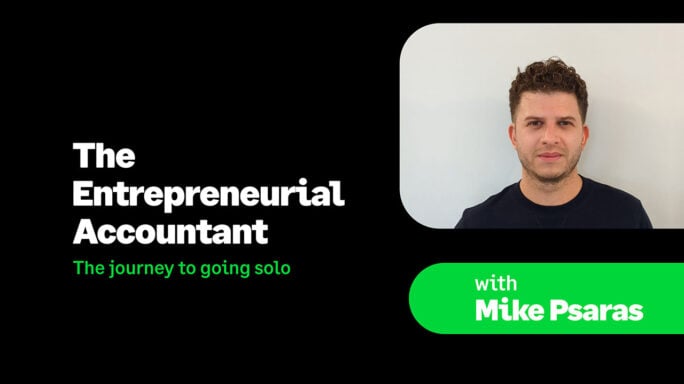
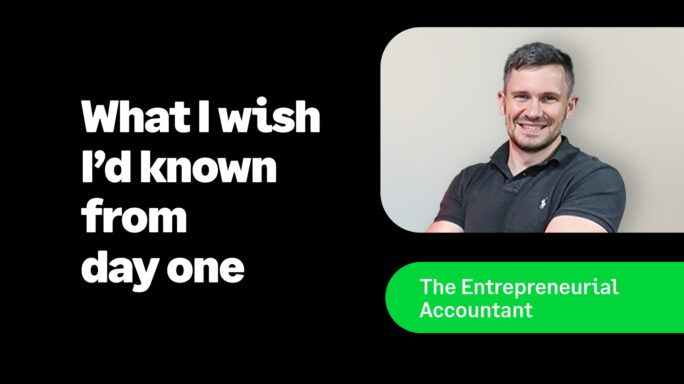
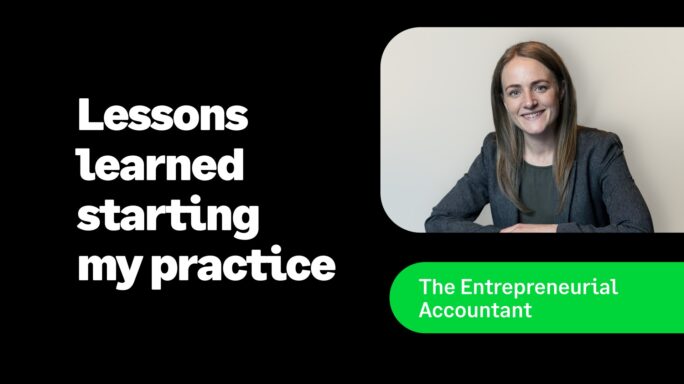
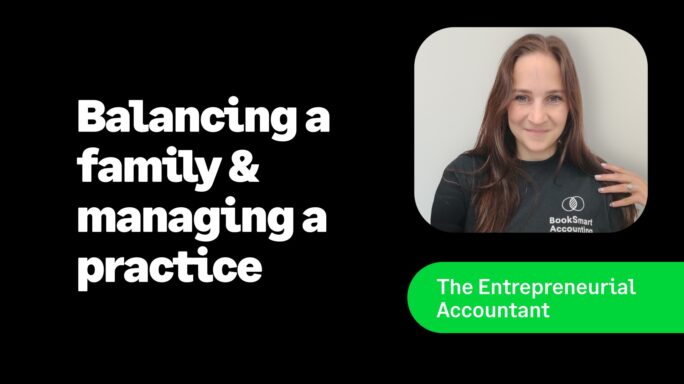
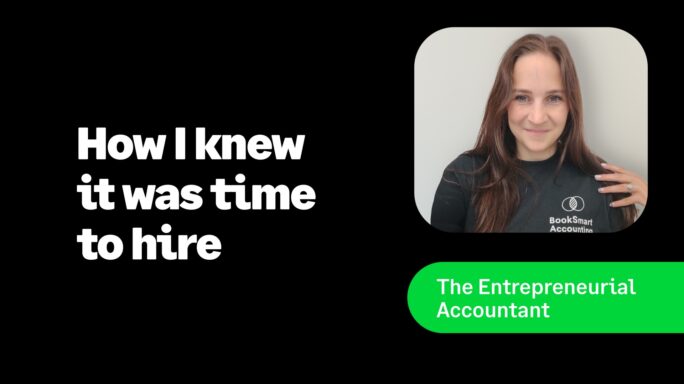
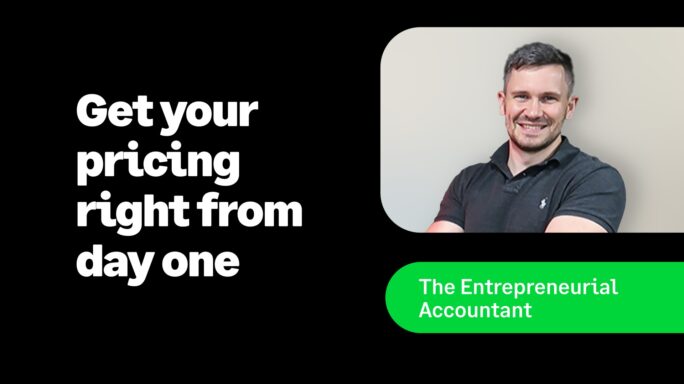
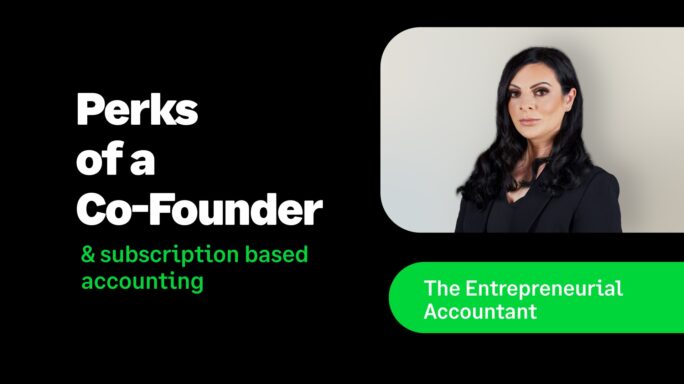
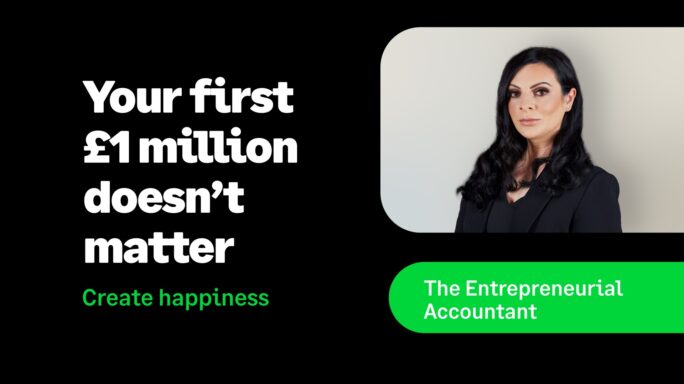
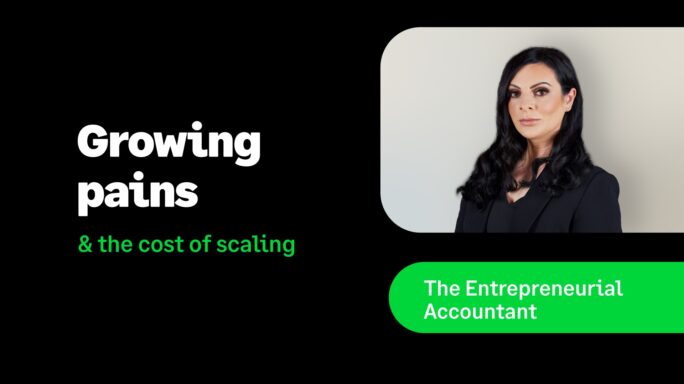
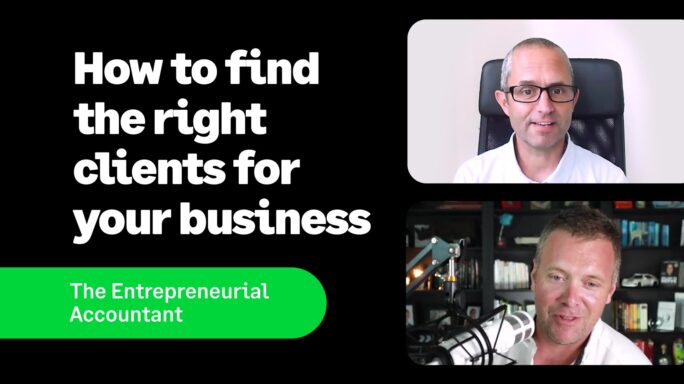
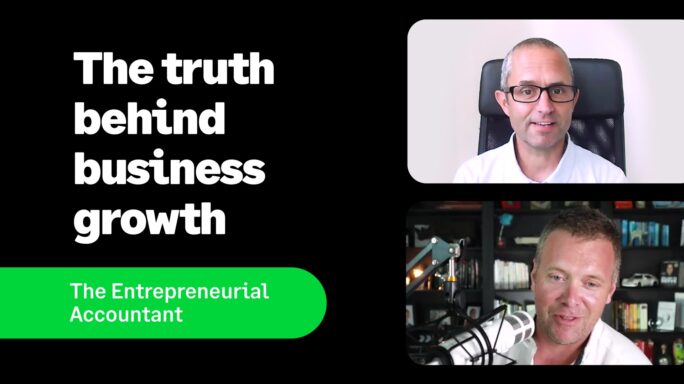
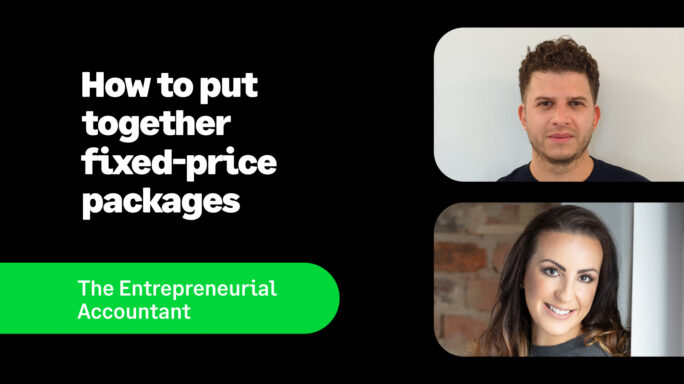
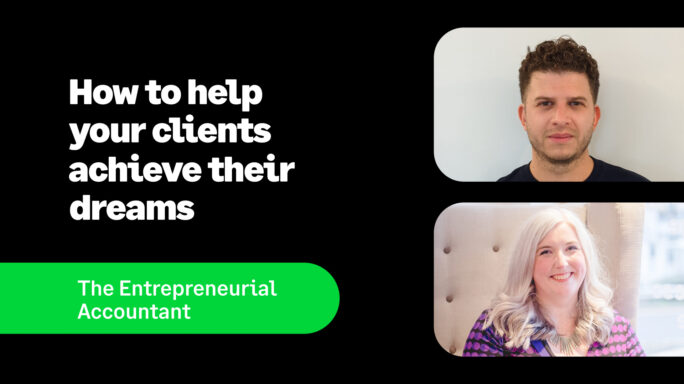
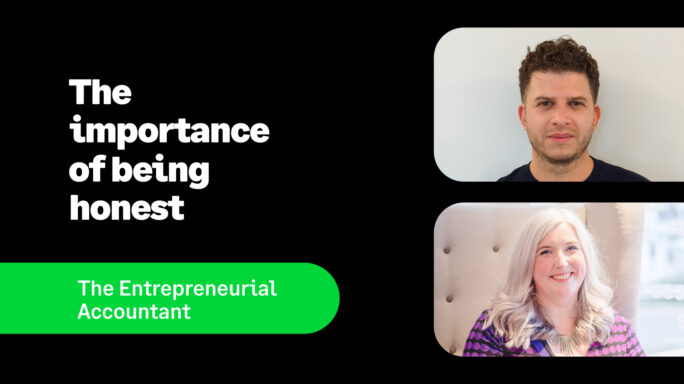
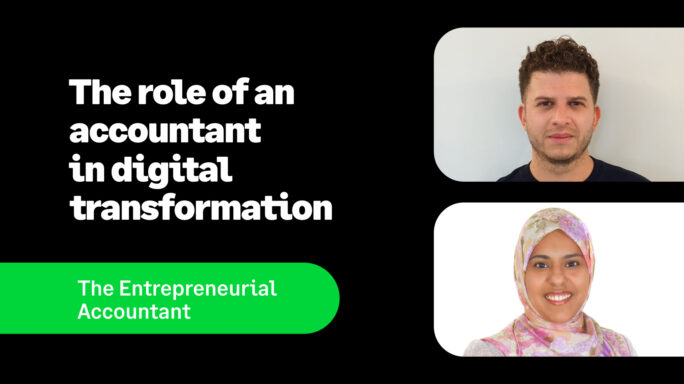
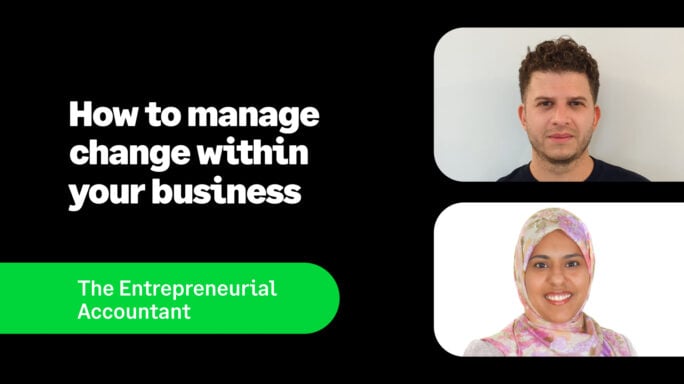
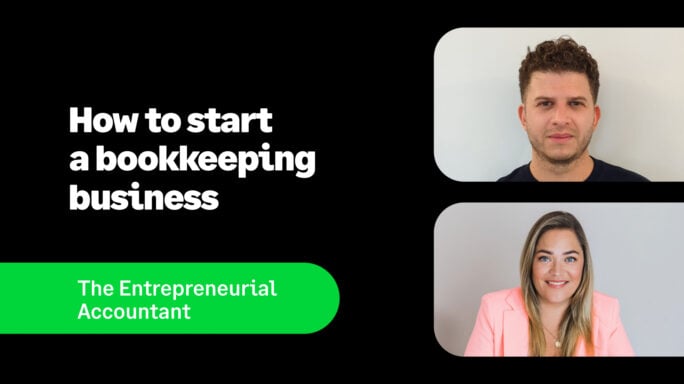
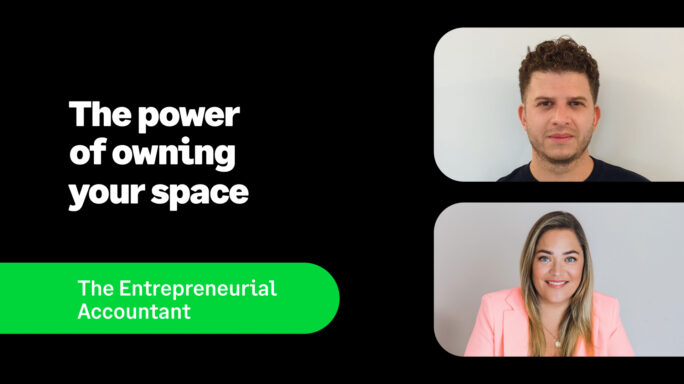







Comment below